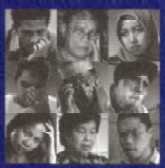|
ILLEGAL
DEPOSIT TAKING / GET-RICH-QUICK-SCHEMES
PURPOSE
The purpose of this page is to provide information to promote
public awareness not to participate in get-rich-quick schemes involving the
taking of illegal deposits.
INTRODUCTION
There are various types of illegal deposit taking schemes. The mode of operation
differs from scheme to scheme. They are commonly referred to as "get-rich-quick" schemes
whereby an amount of money is deposited or invested with the operator of the
schemes on terms that it will be repaid with or without interest. Such schemes
usually promise interest rates, returns or profits, which are much higher than
the interest offered by licensed financial institutions for their deposits.
These
promises of high returns will attract the public to participate in the schemes. There
is no assurance that the operators of such schemes can continue to pay the
high returns. At the beginning of such schemes, the operators are able to use
money received from subsequent depositors to pay high returns or to pay the
principle amount to earlier depositors. However, the scheme operators cannot
invest the deposits in equally or more lucrative ventures or investments and
therefore cannot sustain the high returns or repayment promised to their depositors. The
schemes will fail if there are no new deposits being continually received
by the operators. At that time, such "get-rich-quick" schemes will collapse
and the depositors or investors will lose their money.
FREQUENTLY
ASKED QUESTIONS (FAQs)
Q1:
What is a "deposit"?
In the context of get-rich-quick schemes, the deposit could be explained as
follows:
(1) A sum of money placed with the operator of the scheme, who may be a company,
a partnership or a private individual.
(2) The operator promises to pay high interest, return or profit on the deposit
collected within a short period of time. Some schemes do not pay interest but
may reward the depositors in kind or other benefits.
(3) According to the terms of the scheme, the deposit and profit will be given
back to the depositor on a certain date. This date can be decided by the operator
alone or both the operator and depositor. Sometimes, the depositor can also
ask for the deposit to be returned before the specified date.
(4) The deposit can also be repaid in cash or in kind, for example ,in the
form of precious metal, precious stones, jewelery, electrical goods or cars.
Q2:What
is "illegal deposit taking" (IDT)?
It is an act of receiving, taking or accepting deposits without valid licence
issued under the Banking and Financial Institutions Act 1989(BAFIA).Operating
such a get-rich-quick schemes is against the law as the operator does not
have a licence to receive deposits?
Q3 : What are the features
of IDT?
The features of IDT are :
(1) The operator has no valid licence to collect deposits.
(2) The operator promises to pay high returns or profits within a short period. These
returns are normally higher than the rates offered by licenced financial institutions.
(3) Besides cash, part of the return may be paid in kind, for example, in the
form of operator's coupons, goods, jewelery or electrical goods.
Q4 : Which
institutions are allowed to accept deposits ?
Only licensed institutions and a number of other authorised institutions are
allowed to accept deposits from the public. Examples are :
- Commercial Banks
- Finance Companies
-Others ( Authorised institutions such as Merchant Banks, Discount Houses, Bank
Kerjasama Raykat, Bank Pertanian Malaysia, Bank Simpanan Nasional, Lembaga Tubang
Haji, registered co-operatives and other authorised by law to collect deposits.)
NOTE: If you have
ant doubt to whether an institution is authorised or licensed to collect deposits
,please check with Bank Negara Malaysia (BNM) -refer to Question 11
Q5 : What is the penalty
for IDT?
The maximum penalty for accepting deposits illegally is imprisonment of not
more than 10 years and/or a fine of not exceeding RM10 million and a fine
of RM 100,000 for each day the offence continues.
Q6 :Who
are usually the operators of the get-rich-quick schemes?
The get-rich-quick scheme operators may be individuals, partnerships or companies. Such
operators may obtain a certificate of registration from the Registrar of Companies
(ROC) or Registrar of Businesses (ROB) to give the impression to the public
that their business is legitimate one. However ,this certificate of registration
from ROC or ROB does not authorise the operators to collect deposits.
Q7 :Who are usually the victims of these get-rich-quick schemes?
The victims include all sections of the community who want quick and high
returns without regard to the risks involved. Some of these people may be aware
of the high risks involved but they unwisely choose to disregard such risks
in anticipation of the high returns.
Q8 : What are
the risks involved in participating in the IDT schemes?
The risks are :
(1) Causing burden and grief to themselves and their family if they had used
their savings, made ASB withdrawals or obtained loans from banks or co-operatives
just to participate in such schemes. They will quickly become poor rather than
rich.
(2) Being charged for abetting an IDT activity under BAFIA. The penalty for
abetting is the same as the penalty for the operator conducting the IDT operator.
Q9 : How
does one loss money in IDT schemes?
A depositor may lose money in an IDT scheme when:
(1) The scheme collapses. As such IDT schemes are funded by members' deposits, the
schemes will survive as long as existing members or new members continue to
put in money. But if no one continues to put in money, the operator cannot continue
to pay out the high returns or repay deposits which are due. At that time, the
scheme will collapse and depositors will lose their money.
(2) The operator has from the start, no intent in to return the deposits and
absconds with the money collected.
Q10 :
Why are get-rich-quick schemes still in operation?
As long as members of the public are blinded by the promise of high returns
and continue to take part in these schemes without regard to the risks
involved, there
will be no end to these schemes. People who are not careful and are attracted
by promises of high returns will help to perpetuate such illegal schemes and
continue to lose their savings.
Q11 :
What should you do if you have any query or information on suspected IDT or
get-rich-quick schemes?
You can forward any query or information in writing to:
BANK NEGARA MALAYSIA
Corporate Services Department,
Jalan Dato`Onn,50480,Kuala Lumpur.
or through the following:
E-mail ' info@bnm.gov.my
Telephone : 03-2694 6480/03-2694 6437
Facsimile : 03-2691 2990
"......
in the end we lost everything .... "
Produced by BANK NEGARA
MALAYSIA (Central Bank of Malaysia)
|





